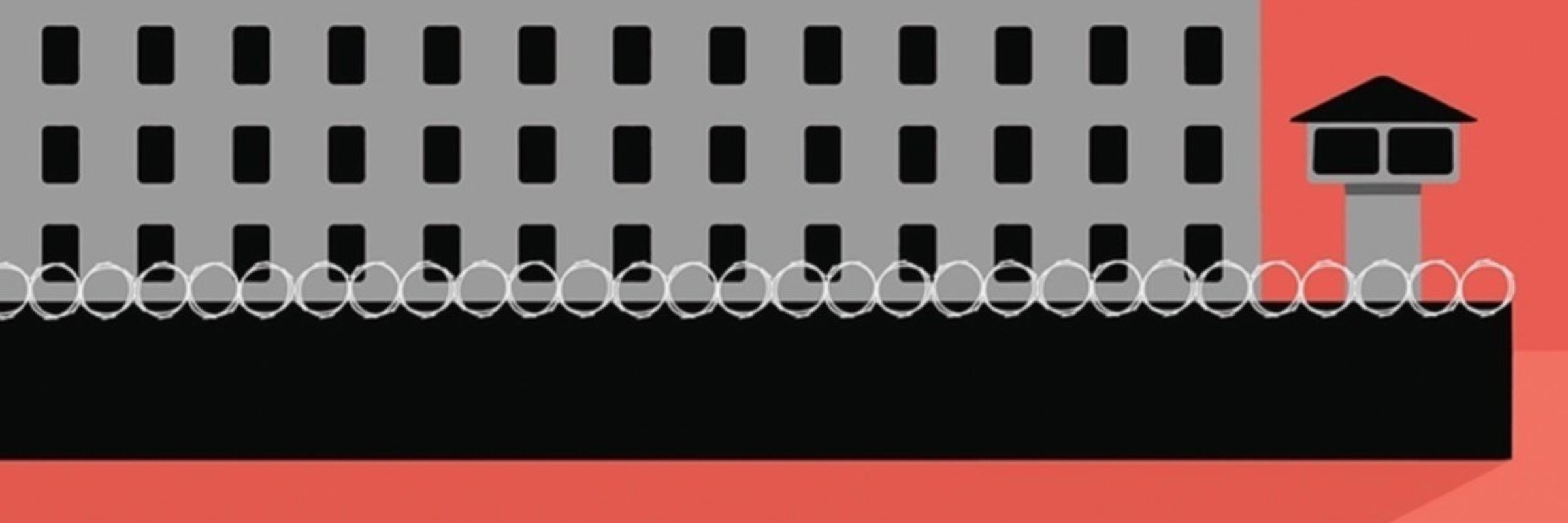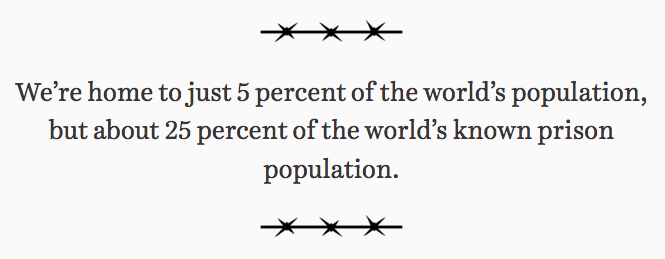
Our Broken Justice System Doesn’t Reflect Our Values
Equity & Justice
Posted October 2015
For decades, our broken criminal justice system has undermined our national potential.
Our country incarcerates more of its citizens than any other country on Earth – in fact, we’re home to just 5 percent of the world’s population, but about 25 percent of the world’s known prison population. We dole out overly-punitive sentences that don’t improve public safety outcomes. We continue fighting a failed war on drugs that has led to the mass incarceration of nonviolent, largely minority offenders. We make reentry overwhelmingly difficult, creating significant barriers to success at work or in school once an offender’s debt to society is paid.

Our broken system is a drag on our economy. American taxpayers spend more than a quarter of a trillion dollars a year on correctional expenses at the federal, state, and local levels, including for police and judicial services. We spend over $6 billion a year on federal prisons, largely due to an 800 percent increase in the federal prison population fed overwhelmingly by an increase in incarceration of nonviolent offenders. Furthermore, studies have shown many hidden economic costs within our system, with estimates that the poverty rate here in our country would have been roughly 20 percent lower between 1980 and 2004, if not for mass incarceration. Our broken system has held back the very idea of justice in America, perpetuating policies that have disproportionately and unjustly resulted in more African American men in prison or under state or federal supervision today than there were enslaved in 1850.
And our broken system has broken our children: 1 in 28 kids in America grow up with a parent in prison, and we incarcerate more kids here in the U.S. than any other country. Currently, 70,000 young people are in held in juvenile detention in the U.S. on any given day—these young people are less likely to finish high school and more likely than their peers to enter the criminal justice system as adults.

The way our system operates not only undermines our country’s potential, it calls into question our priorities.
Between 1990 and 2005, a new prison opened in the United States every ten days. Yet, a 2012 international assessment ranked the United States 35th in math and 27th in science among 64 countries when it came to testing the skills and knowledge of 15-year-old students.
This incongruence between our ideals and the ways in which we are devoting our national resources should not merely shock us. It must compel us to act. What if the money we spent on opening and maintaining our system of mass incarceration were used instead to help educate and empower our children and better resource law enforcement?
There is a momentum building across state and party lines to begin fixing this broken system. I was proud to join with my colleagues in the Senate to introduce the Sentencing Reform and Corrections Act of 2015 earlier this month. Our bill includes critical sentencing reforms to help make federal sentencing laws fairer and more just, and important provisions that limit juvenile solitary confinement and allow juveniles to obtain sealing or expungement of their convictions under certain circumstances.
But this bill is just the beginning. It’s more critical than ever that we approach reforming our broken justice system with a serious sense of urgency— knowing that nothing less than the success of our economy, the validity of our national creeds, the wholeness of our society and the future of our children hang in the balance.
Connected Stories
-

Democracy’s Frontlines
These poll workers are ready to pass the baton of civic duty and ignite action across new generations and communities.
Equity & Justice -

Scapegoating Undocumented Immigrants Threatens Our Democracy
Justifying voter suppression by falsely claiming that undocumented immigrants commit voter fraud disenfranchises citizens of color; unconstitutional efforts to depress immigrants’ participation in the census undercounts entire communities.
Immigration, and Equity & Justice -

The “Illegal” “Essential” Workforce
When the pandemic decimated the American economy, an indispensable undocumented workforce was left to risk contracting coronavirus on behalf of a country that remains fixated on deporting them.
Immigration, and Equity & Justice
